SUICIDAL PREVENTION
World Mental Health Day (10 October) is a day set aside for global mental health education, awareness and advocacy against social stigma. Every 10th of October, thousands of supporters come together to provide ideas and strategies required to make mental health care actuality for the universe.
World Mental Health Day 10/10/2019
What are suicide and suicidal behaviour?
World Health Organization defined suicide as an act of killing oneself deliberately (intentional self-inflicted suffering), which was taken out from sui (of oneself) and caedere (to kill).
Suicide is a very difficult subject that connects several factors and there is no specific cause of suicidal thoughts or feelings. Scientist has not been able to find a single cause of suicide, but insight mechanism is developed for preventive strategies at various levels. “Suicide remains the prototype”.
Many people take Suicide decision to deal with unbearable mental suffering and pain, fear or despair that overwhelms an individual’s value for living and hope in life. While there is a well-established link between suicide and depression, each suicide occurs in a unique mix of complex interconnected factors, individual, environmental, biological, psychological, social, cultural, historical, political and spiritual, including psychological trauma (both developmental and intergenerational).
Warning signs
- Social avoidance Or withdraw from friends, family and the entire community
- Exhibiting tremendous Impulsive or reckless behaviour
- Feelings of hopelessness or loneliness
- Creation of will or giving away personal belongings
- They will start carrying out suicide plan by getting harmful objects ready
- Excessive sleep or deliberate decisions of denying themselves sleep.
- They engage in an overeating act or decide not to even eat at all and this is to gain or lose weight
- Engaging in reckless behaviours, including excessive alcohol or drug consumption
- Having dramatic mood swings
- Saying they have nothing to live for and comments about killing themselves as the convenient way out.
- Substance abuse
What are the risk factors of suicide?
Many factors and the certain situation can prompt an individual to decide on ending his or her life.
- severe physical illness such as cancer or HIV
- major life changes events that can weigh someone down and inability to cope with life demands, failure, substance abuse, or another type of distress,
- social disconnection or relationship disappointment
- family history of suicide
- Depression, bipolar disorder, schizophrenia, anxiety disorders, and personality disorders
- inability to get needed help, treatment or support to manage mental illness
- any kind of abuse or childhood pains
- persistent experience of bullying or harassment
- substance abuse, childhood abuse or trauma
- previous suicide attempts
- imprisonment
- Unemployment or unsatisfactory job
- access to poisonous drugs or harmful weapon
- exposure to suicide
- following belief systems that accept suicide as a solution to personal problems
- Family history of suicide
How to talk to someone who is feeling suicidal
It is worrisome when your loved ones display suicidal signs. Nevertheless, you should take crucial action and render quick help and intervention. Have a deep conversation with them, try not to be judgmental and don’t go into an argument with them. Just put the question straight to them “Are you considering suicide as your last option?” the first thing you should put into consideration is that their feelings are genuine and all they need is your support, so you have to stay calm, listen carefully to their concerns and take every dangerous objects or substance far away from them.
Treatment for people who are at risk for suicide
In most cases, treatments usually depend on the fundamental cause of the person suicidal thoughts and behaviour; however, treatments such as talk psychotherapy, cognitive behavioural therapy, lifestyle changes recommendation and medication.
Stop Mental Illness Stigma Foundation intention toward this event is to help Nigerians consider positive mental well-being as a significant predicts to promote and nurture promising economics, political and improve the development of social amenities. We want to address Psychological; behavioural and social processes as fundamental to a comprehensive understanding of health, which is why we need to utilize certain strategies such as music, sport, workshop, street and campaigns in our youth territory to accomplish possible solutions to decrease the level of stigma and encourage Nigerians to seek medical attention when we observed any mental illness symptoms.
Are you struggling with suicidal thoughts and feelings?
Are you willing to understand the symptoms of mental illness, to support your loved ones?
Do you want to acquire knowledge on how to cater for your mental health?
Do you need help to tackle substance abuse?
SMIS Foundation can help you reduce psychological pains, help defuse suicidal thoughts and address your substance abuse. We are available to help Nigerians tackle the Stigma preventing many people from seeking help.
You don’t have to suffer alone, share your concern with us.
